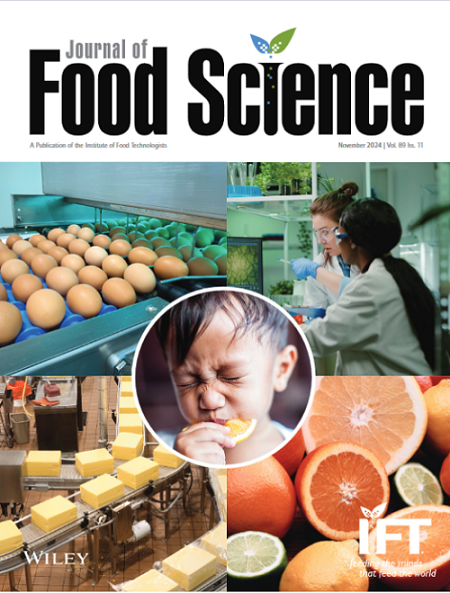Development and Characterization of Palm Oil-Based Oleogels Using Beeswax and Carnauba Wax as Healthier Beef Fat Mimetics
Abstract
Animal fat crucially provides flavor, texture, and overall mouthfeel in meat products. However, its high saturated fatty acids (SFAs) levels present notable health risks, highlighting the need for healthier fat alternatives that maintain product quality. This study explored the potential of palm oil (PO)-based oleogel as an alternative to beef fat (BF). Specifically, two PO-based oleogels were formulated; one comprising PO and another comprising a mixed oil-based oleogel (MOG) of palm (66%), olive (12%), and linseed oils (22%). Beeswax (BW) and carnauba wax (CAW) were used as oleogelators at concentrations of 5%, 7.5%, and 10% w/w. Physicochemical properties and fatty acid composition were assessed against BF. In general, although there were differences in color and oxidative stability, the textural and thermal characteristics of PO-based oleogels showed notable similarities to BF. Additionally, MOG demonstrated a significantly (p < 0.05) improved fatty acid profile and better health indices compared to BF, characterized by reduced SFA content and increased levels of polyunsaturated fatty acids. In terms of oleogelator, oleogels formulated with higher concentrations of CAW exhibited a more compact microstructure, enhanced hardness, greater thermal stability, and increased susceptibility to lipid oxidation. In contrast, BW-based oleogels were characterized by a softer texture. The findings highlighted the potential of PO-based oleogels as a healthier alternative to traditional animal fats.
Practical Application
Animal fat enhances flavor and texture in meat products but poses health risks due to high saturated fat content. This study explored palm oil-based oleogels as healthier alternatives to beef fat, aiming to mimic fat characteristics while improving health profiles. Using beeswax and carnauba wax as oleogelators, the oleogels demonstrated similarities to beef fat in certain properties while achieving improved fatty acid profiles and lower atherogenic and thrombogenic indices compared to beef fat. These findings highlight the potential of palm oil-based oleogels as innovative and health-conscious fat alternatives, aligning with consumer demands for healthier and more sustainable dietary options.

 求助内容:
求助内容: 应助结果提醒方式:
应助结果提醒方式:


